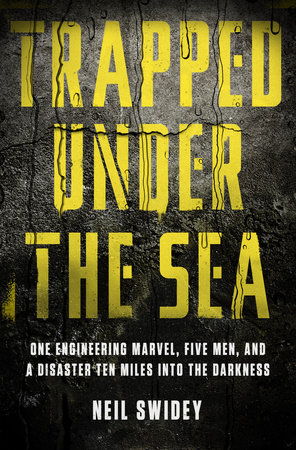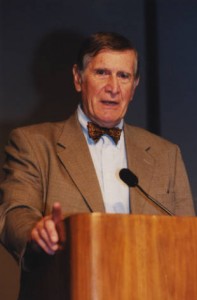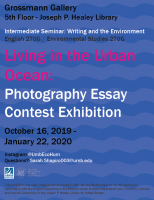
Flyer for the Student Photo Essay Exhibition, “Living in the Urban Ocean”
The photograph essay contest exhibition Living in the Urban Ocean is now on display through January 22, 2020, in the Grossmann Gallery on the 5th floor of the Joseph P. Healey Library. The exhibition has been made possible in part by the National Endowment for the Humanities, in partnership with the English Department, the Environmental Studies Department, and University Archives and Special Collections in the Healey Library at UMass Boston.
Throughout the Spring 2019 semester, students enrolled in Intermediate Seminar: Writing and the Environment (English 270G/Environmental Studies 270G) investigated the social, cultural and historical locale of Boston Harbor through archival and library resources. In addition, students developed their own urban ocean relationships through creative writing, walking, and reflection. In the era of the smartphone, creating a photo essay provided students with an opportunity to share their semester’s work through a visual language which they already use daily.
Students were asked to situate themselves in their urban ocean environment and tell an eco-story through photography. Students used iPhones and personal cameras to complete their photo essays. The winners of the photograph essay contest were selected through an online poll for best story told without words.
The Grossmann Gallery is open during library hours (posted here).
University Archives and Special Collections in the Joseph P. Healey Library at UMass Boston collects materials related to the university’s history, as well as materials that reflect the institution’s urban mission and strong support of community service, notably in collections of records of urban planning, social welfare, social action, alternative movements, community organizations, and local history related to neighboring communities.
University Archives and Special Collections welcomes inquiries from individuals, organizations, and businesses interested in donating materials of an archival nature that that fit within our collecting policy. These include manuscripts, documents, organizational archives, collections of photographs, unique publications, and audio and video media. For more information about donating to University Archives and Special Collections, click here or email library.archives@umb.edu.
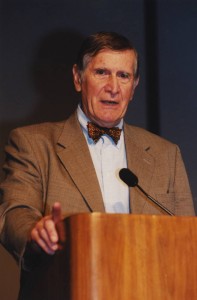
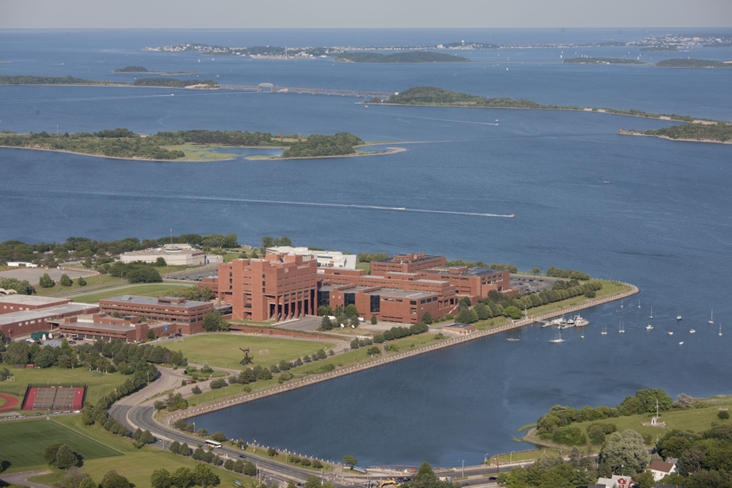 University Archives & Special Collections in the Joseph P. Healey Library welcomes inquiries from individuals and organizations who are seeking an archival home for materials that may now be riskily stored in basements or old file cabinets but that would serve as valuable research materials for scholars, students, and the general public.
University Archives & Special Collections in the Joseph P. Healey Library welcomes inquiries from individuals and organizations who are seeking an archival home for materials that may now be riskily stored in basements or old file cabinets but that would serve as valuable research materials for scholars, students, and the general public.